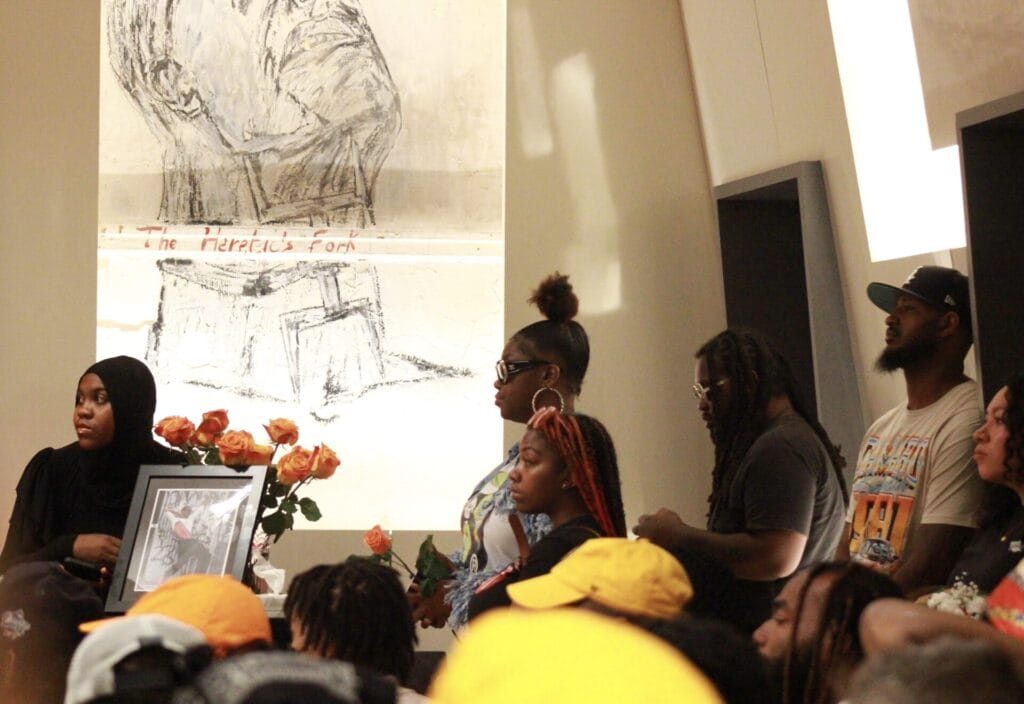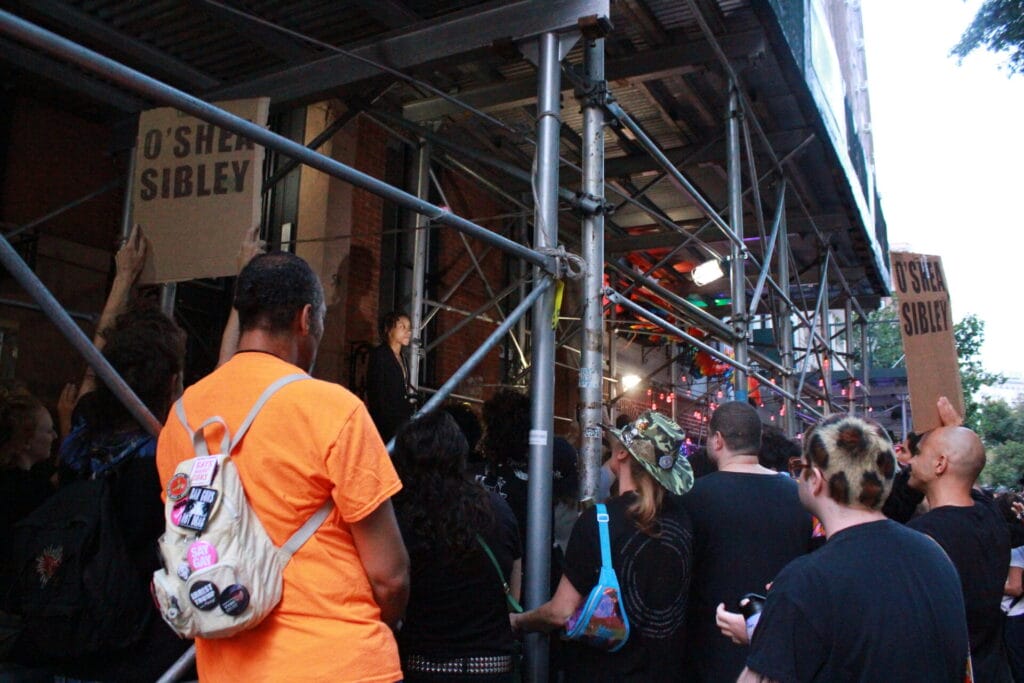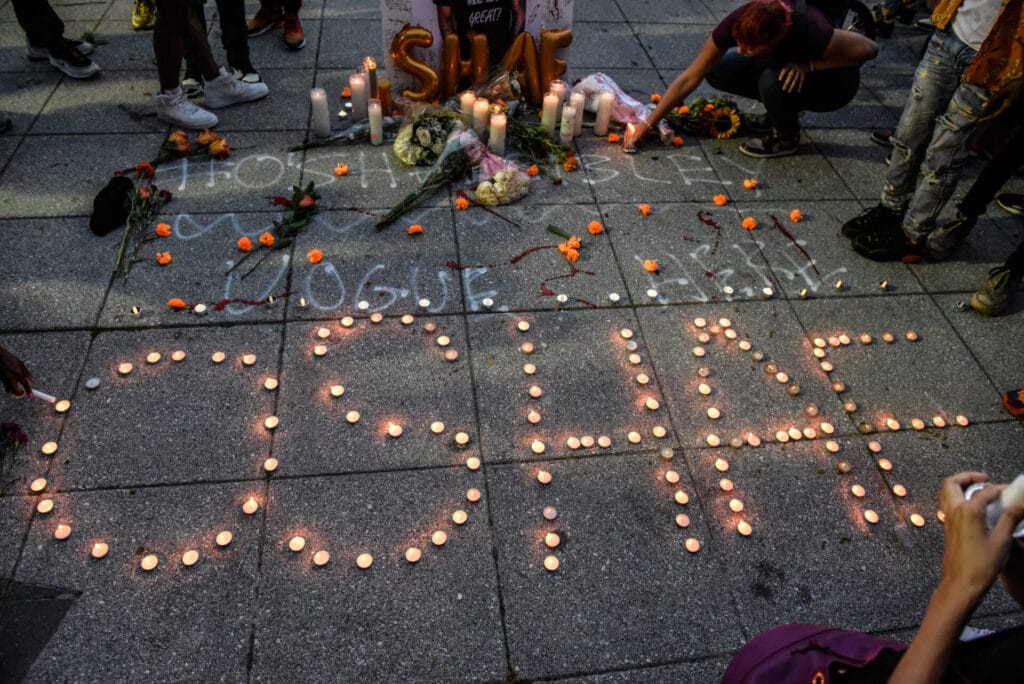This week marked one year since the murder of O’Shae Sibley, a talented and beloved dancer, ballroom performer, brother, a friend, and an artist. Sibley continues to be remembered for his big heart, for voguing, and defending his family. His lasting impact remains in the work to bring awareness to the anti-LGBTQ violence, sexism, and racism that cost him his life.
O’Shae Sibley, on July 29, 2023, was fatally stabbed at a Mobil gas station in Brooklyn for publicly voguing as a Black, gay man to Beyonce’s Renaissance. That night also happened to be Beyonce’s show at New Jersey’s MetLife Stadium. After Sibley passed on, Beyonce dedicated her homepage to him.
“Rest in Power O’Shae Sibley,” read Beyonce’s home screen last summer.
The 17-year-old who murdered Sibley has since been arrested and charged for murder as a hate crime. Nevertheless, LGBTQ memorial organizers, public officials, and activists reflect with GLAAD on whether justice has been served for the at-large community in New York City and beyond.
Each year, around the country, LGBTQ people are targeted just for expressing themselves, for living, for being. Sibley was expressing his femininity and celebrating ballroom music, culture, and history on a summer night in late July. He was expressing his joy with loved ones in one of the most culturally diverse cities in the world. New York state also has some of the best protections for LGBTQ people in the country, according to the Movement Advancement Project.
Yet, those laws won’t bring Sibley back, nor Bernardo Pantaleon, nor Daniel Landeros, nor Laura Ann Carleton, nor Jasmine “Star” Mack, nor Maria Jose Rivera Rivera, nor Cashay Henderson, nor Zachee Imanitwitaho, nor Nex Benedict. People marching in the streets demanding better say their names to never forget.

“I hate speaking about my brother in the past tense,” said Dezirah Kelly, one of Sibley’s sisters at a press conference at The 13th St. LGBTQ Center last year. “He got killed because he was comfortable and confident in who he was.”
In the year since Sibley’s murder, GLAAD tracked at least 47 anti-LGBTQ incidents in NYC, including 17 other assaults resulting in injuries.
GLAAD research shows an overwhelming majority of non-LGBTQ Americans believe that LGBTQ people should have the freedom to live their life and not be discriminated against, and that schools should be a safe and accepting place for all youth. While this is true, 55% of non-LGBTQ Americans do not understand the dimensions of the LGBTQ community or how to describe individuals that make up the LGBTQ community, and 66% of non-LGBTQ Americans believe the false claim that the LGBTQ community is one group who all share similar needs and issues.
This can often lead to lethal misconceptions about the community, which encourages the spread of misinformation and hatred fueled by ignorance. Therefore, real world violence becomes a reality. A reality that took O’Shae Sibley’s life.
For District 36 Council member Chi Ossè, the murder of O’Shae Sibley was a tragedy for all of Brooklyn. Sibley is lived in the 45 Council District, and is from Philadelphia.
“[Sibley’s murder was] felt deeply by the LGBTQ community. Hate and hate crimes remain at unacceptable levels,” the council member said in an email statement to GLAAD,
Anti-LGBTQ hate speech, harassment, and disinformation — ranging from overt bigotry to dog whistles — cause real harm to LGBTQ people and to society as a whole. Nationally, GLAAD tracked over 900 nationwide since Sibley’s murder. These include almost 200 protests, 160+ death threats, and 150+ acts of vandalism. Even more concerning, GLAAD documented at least 70 more anti-LGBTQ assaults resulting in 9 deaths and 78 injuries.
“[T]here is a shared responsibility between all levels of government and civil society to educate, legislate, and build toward a world in which Sibley would have still been with us today,” Ossé emphasized.

New York City’s Diamond Cartier says this is why informed community equity is imperative to evolving quality of life conditions for the at-large LGBTQ community.
“Honestly, seeing that a year has passed, not much change has come for our trans and non-binary black and brown siblings. I’m looking for equity. Treat us like humans. Meet us where our needs are more severe…” Diamond Cartier, organizer of Sibley’s memorial at Stonewall Inn last year, wrote to GLAAD in a statement. “Me personally, I’ve been happy and sad. Seen progress in the moment then, seen the world backtrack with the amount of Anti-Trans/Queer Legislation passed.”
Cartier runs a gender-inclusive beauty business named Dimez Beauty (NYC) while organizing for equity, inclusion, and accurate education and representation for and of the BIPOC LGBTQ community of NYC. Their hope and confidence lies within community organizing.
“We’ve kept marching…But, we’ve now expanded our activism to the needs we seen in the community! Like more safe-spaces, more political education and more youth and queer centered actions! As we march down the street for hood vigils for any fallen sibling, we still show up and say his name… to remind people that O’Shae Sibley still lives on through us,” Cartier continued.













